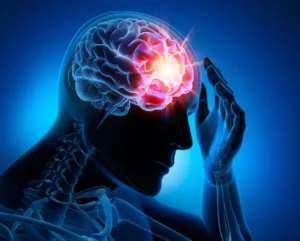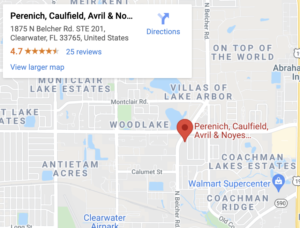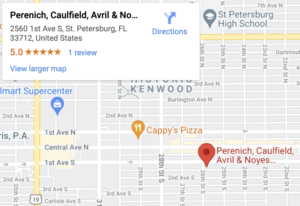
Concussions are generally viewed as relatively minor injuries that result in full recoveries. However, they often have lingering effects that can significantly impact a victim’s quality of life and earning ability. One of these common effects is memory loss, which can take a serious toll on the injured individual.
If you’re struggling with memory loss after a concussion, it’s best to understand the implications of this type of injury. Following medical advice and consulting a personal injury lawyer are good ways to protect yourself if you need to recover personal injury compensation.
Table of Contents
What Is a Concussion?

The term “concussion” is typically used as shorthand for a mild brain injury. A blow to the head can temporarily disrupt normal brain function. As such, concussions most often occur in accidents that involve trauma to the head, such as workplace, sports, and car accidents.
Common signs of a concussion include the following:
- Head pain
- Nausea or vomiting
- Dizziness or disorientation
- Confusion
- Sensitivity to light or noise
- Memory loss
Concussion treatment usually involves a period of rest wherein the individual abstains from work or school. They are also advised to avoid reading, screen use, and exercise.
In most cases, concussions result in a full recovery after a few weeks. However, there are instances in which the injured person may continue to experience lingering concussion symptoms that substantially hinder their quality of life. One of the most common of these, as mentioned, is memory loss.
How Common Is Memory Loss After a Concussion?
In the days and weeks following a concussion-causing injury, memory loss is a fairly common occurrence. Most of the time, it takes the form of short-term memory loss that resolves after the recovery period.
Nevertheless, concussion-induced memory loss can be both frustrating and concerning.
Often, an individual healing from a concussion struggles with forgetfulness or confusion that manifests in the following ways:
- Walking into a room and forgetting what they were going to do there
- Forgetting the items they need at the grocery store
- Forgetting about scheduled meetings, appointments, and deadlines
- Forgetting whether they’ve completed daily tasks
Minor memory issues like these aren’t necessarily dangerous during the concussion recovery period. And that’s because none of them involve or affect an individual’s long-term memory. However, it’s still important to let your doctors know if you’re experiencing them, especially if they appear to worsen or last more than a week or two.
Types of Concussion Memory Loss
Concussion-induced memory loss that lingers beyond the expected recovery period can take one of two forms: recurring short-term memory loss and long-term memory loss. Both of these are cause for concern, as they indicate a more severe (or even permanent) brain injury.
Recurring Short-Term Memory Loss
Recurring short-term memory loss is similar in appearance to that which sometimes accompanies a concussion. But the difference is that instead of resolving within a few weeks, it can linger for months or even years.
Forgetting your shopping items or daily chores for a week or two is an inconvenience. Living in such a matter for an extended period of time, on the other hand, can seriously diminish your quality of life.
Concussion healing typically involves staying home from work or school. However, attempting to return after the usual recovery period while still dealing with recurring memory loss can produce results that make performing duties anywhere from challenging to impossible.
In nearly any sector of work or school, recurring short-term memory loss can easily make it impossible for a worker or student to meet the obligations expected of them. This, in turn, may result in significantly impacted earning ability, unemployment, or (in the case of a student) academic struggles.
Long-Term Memory Loss
The brain handles short-term and long-term memories in different ways. Short-term memories are things you don’t need to recall years later. The items on Thursday’s shopping list or a 10 a.m. dentist appointment are examples of things briefly stored in short-term memory and then discarded.
In contrast, long-term memories are often central to an individual’s sense of self. Examples include the names of your childhood best friends, your parents’ birthdays, and any skills and knowledge necessary to the success of your career. All of these became basic details and second nature to you years ago. Therefore, they are items stored in your long-term memory.
It’s less common for a concussion to impact long-term memory, but it can happen. And when it does, it’s often the result of a more devastating type of injury than that which causes short-term memory loss. Of course, as is now clear, both forms can wreak havoc on one’s earning ability and overall quality of life.
Recovering Compensation for Concussion Memory Loss
The brain is a highly complex organ, and there’s much that doctors still don’t know about it. When a concussion results in lasting memory issues, there’s often little a doctor can do to restore the brain’s original function.
As a result, lingering concussion memory loss often means that the injured individual must adapt to a new way of life. And when memory loss impairs safety or makes employment impossible, financial challenges, such as significant medical bills, inevitably result.
Thankfully, a brain injury lawyer may be able to help you recover concussion compensation through a personal injury claim.
The insurance money obtained through a claim can compensate you for the financial impact of the concussion, covering things such as:
- Medical bills
- Therapist costs
- Medical imaging costs
- Lost wages and benefits
- Loss of future earning ability
- Emotional anguish
- Diminished quality of life
Case values are always unique when it comes to brain injury claims. As such, if you or a loved one are dealing with concussion-related memory loss, your first step should be to attend a free consultation with a personal injury lawyer. A lawyer can help you understand your potential case value and options for obtaining compensation.
Consult Our Clearwater Brain Injury Lawyers Today
The impacts of concussion-related memory loss can range from challenging to outright devastating. But the good news is that even when the lingering effects of a concussion take a toll on your finances, a personal injury lawyer can help you recover.
Perenich, Caulfield, Avril & Noyes Personal Injury Lawyers is a personal injury law firm located in Clearwater, Florida. Our experienced personal injury attorneys have a long track record of obtaining the compensation our injured clients need. Call us today to schedule your free consultation at (727) 796-8282 with an experienced Clearwater brain injury lawyer.


